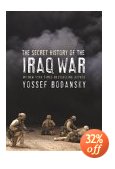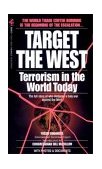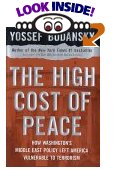|
1955: |
Atomic Energy Commission
(PAEC) set up to promote peaceful uses of atomic energy |
|
1972: |
Pakistan
set up first nuclear power station with Canadian assistance. |
|
1974: |
Prime Minister Z. A.
Bhutto vowed Pakistan will “eat grass” if necessary to develop nuclear
weapons after India exploded its first nuclear device. |
|
1976: |
Canada
ended N-ties with Pakistan in a dispute over non-proliferation safeguards. |
|
1976: |
Pakistan
set up Kahuta Research Laboratories near
Islamabad
to establish a uranium enrichment plant to seek nuclear capability. |
|
1979: |
The U. S. cut off
military-economic aid to
Pakistan
after refusing to accept assurances that its nuclear program was purely
peaceful. |
|
1980: |
Pakistan
said it joined ranks of a dozen countries able to fabricate its own nuclear
fuel based on uranium available in the country. |
|
1982: |
The U. S. lifted embargo
on resumption of economic and military aid to Pakistan. |
|
1983: |
Dutch court sentenced A.
Q. Khan to four years’ jail after he was convicted in absentia of nuclear
espionage. Decision was later overturned on a technicality. Khan denied
allegations that he stole plans for uranium enrichment centrifuges from
Urenco, a British-Dutch-German consortium he worked for in
Holland
in the 19070s. |
|
1986: |
Pakistan
and Iran signed nuclear cooperation agreement after visit by A. Q. Khan. |
|
1989: |
PAEC chairman Munir Ahmed
Khan said a nuclear deal with China in November for a 300-megawatt nuclear
plant had broken an international embargo against Pakistan. |
|
1990: |
August: Two months
after Iraq invaded Kuwait, an intermediary claiming to represent A. Q. Khan
met Iraqi intelligence and proposed help in establishing a project to enrich
uranium and build a nuclear weapon. Pakistan later denied this.
October: The
U. S.
stopped military-economic aid to
Pakistan
over suspicions that its nuclear program was weapons-oriented. |
|
1991: |
Pakistan Army chief
General Mirza Aslam Beg told U. S. ambassador he was discussing nuclear and
conventional military cooperation with Iranian army. |
|
1992: |
U. S.
officials said A. Q. Khan initiated talks with North Korea to obtain
intermediate-range ballistic missiles for Pakistan in return for gas
centrifuge designs and other assistance to enrich uranium for nuclear
weapons. |
|
1998: |
Pakistan
test-fired 937-mile range Ghauri missile, which it said can carry nuclear
warheads and was meant to deter
India. |
|
1998: |
India
conducted five nuclear tests. Pakistan expressed alarm and then stunned the
world by conducting six nuclear bomb tests. Both countries were sanctioned. |
|
2001: |
Dictator Pervez Musharraf
removed A. Q. Khan as head of Pakistan’s nuclear programs and named him as
scientific adviser. |
|
2003: |
Pakistan
said it was questioning nuclear scientists over allegations of proliferation
– acting on information from Iran and Muhammad Gadaffi-ruled Libya to the U.
N.’s International Atomic Energy Agency. |
|
2004: |
January: Probe led
to removal of A. Q. Khan as Scientific Adviser to Prime Minsiter.
February 4: Khan
appeared on state television to make personal apology to the nation for
endangering national security by taking nuclear secrets to Libya, Iran and
North Korea.
February 5:
Pakistani Dictator Pervez Musharraf pardoned nuclear proliferator A. Q.
Khan.
October 12:
Pakistan
tested another medium-range nuclear capable missile. The The Hatf-V Ghauri
missile has a range of 1500 Km and can carry nuclear warheads. |


